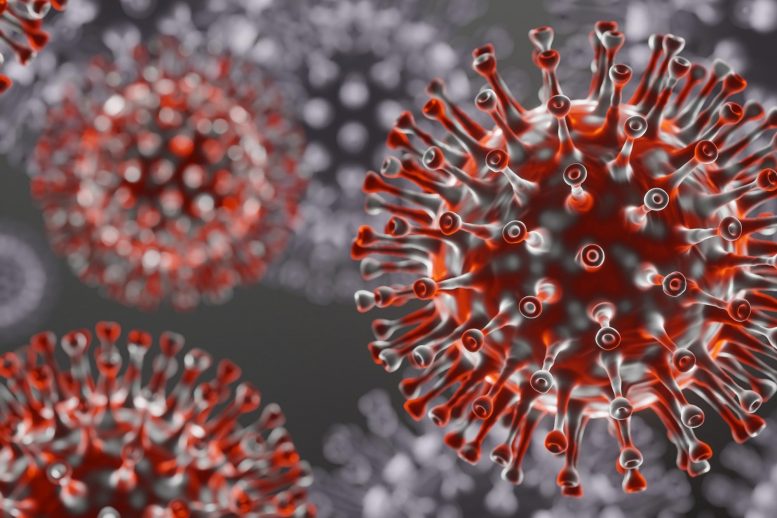
SARS-CoV-2, short for Severe Acute Respiratory Syndrome Coronavirus 2, is a novel coronavirus first identified in Wuhan, China, in December 2019. This highly contagious virus is responsible for the global COVID-19 pandemic, which has impacted millions of lives worldwide. SARS-CoV-2 is an enveloped, positive-sense, single-stranded RNA virus belonging to the Coronaviridae family and the Betacoronavirus genus.
Further investigation through larger studies and extended monitoring is necessary to assess this potential risk.
According to a new study published in JAMA Network Open, researchers at Massachusetts General Hospital, a member of Mass General Brigham, discovered that male newborns (but not females) born to mothers infected with SARS-CoV-2 during pregnancy are more likely to receive a neurodevelopmental diagnosis within the first year of birth.
Previous research has established connections between other infections during pregnancy and neurodevelopmental disorders in children, such as autism spectrum disorder, but it remains uncertain whether the same holds true for SARS-CoV-2. To shed light on this issue, the researchers analyzed electronic health records of 18,355 live births that occurred during the COVID-19 pandemic, with 883 (4.8%) of these births being to mothers who tested positive for SARS-CoV-2 during pregnancy.
Of the 883 SARS‐CoV‐2–exposed children, 26 (3.0%) received a neurodevelopmental diagnosis during the first 12 months of life. Among the SARS‐CoV‐2–unexposed offspring, 317 (1.8%) received such a diagnosis.
After accounting for race, ethnicity, insurance status, hospital type (academic center vs. community), maternal age, and preterm status, maternal SARS‐CoV‐2 positivity was associated with a nearly two-fold higher odds of a neurodevelopmental diagnosis at 12 months of age among male children. Maternal SARS‐CoV‐2 positivity was not linked with a higher risk in female children, however.
At 18 months, the effects were more modest in males, with maternal SARS‐CoV‐2 positivity linked to a 42% higher odds of a neurodevelopmental diagnosis at this age. Too few of the mothers were vaccinated to determine whether vaccination changed risk.
“The neurodevelopmental risk associated with maternal SARS-CoV-2 infection was disproportionately high in male infants, consistent with the known increased vulnerability of males in the face of prenatal adverse exposures,” says co–lead author Andrea Edlow, MD MSc, an associate professor of Obstetrics, Gynecology, and Reproductive Biology, and a Maternal-Fetal Medicine specialist at MGH.
Co–lead author Roy Perlis, MD MSc, associate chief of Research in the Department of Psychiatry and director of the Center for Quantitative Health at MGH, notes that larger studies and longer follow-ups will be required to reliably estimate or refute the risk observed. “We hope to continue to expand this cohort, and to follow them over time, to provide better answers about any longer-term effects,” he says.
Reference: “Sex-Specific Neurodevelopmental Outcomes Among Offspring of Mothers With SARS-CoV-2 Infection During Pregnancy” by Andrea G. Edlow, MD, MSc, Victor M. Castro, MS, Lydia L. Shook, MD, Sebastien Haneuse, Ph.D., Anjali J. Kaimal, MD, MAS and Roy H. Perlis, MD, MSc, 23 March 2023, JAMA Network Open.
DOI: 10.1001/jamanetworkopen.2023.4415
This study was supported by the National Institute of Mental Health, the National Institute of Child Health and Human Development, and the Simons Foundation.

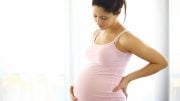
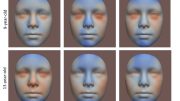

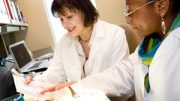
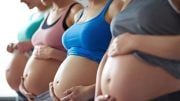
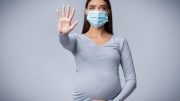
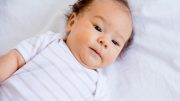

Be the first to comment on "COVID-19 Infection During Pregnancy Linked to Higher Risk of Neurodevelopmental Disorders"